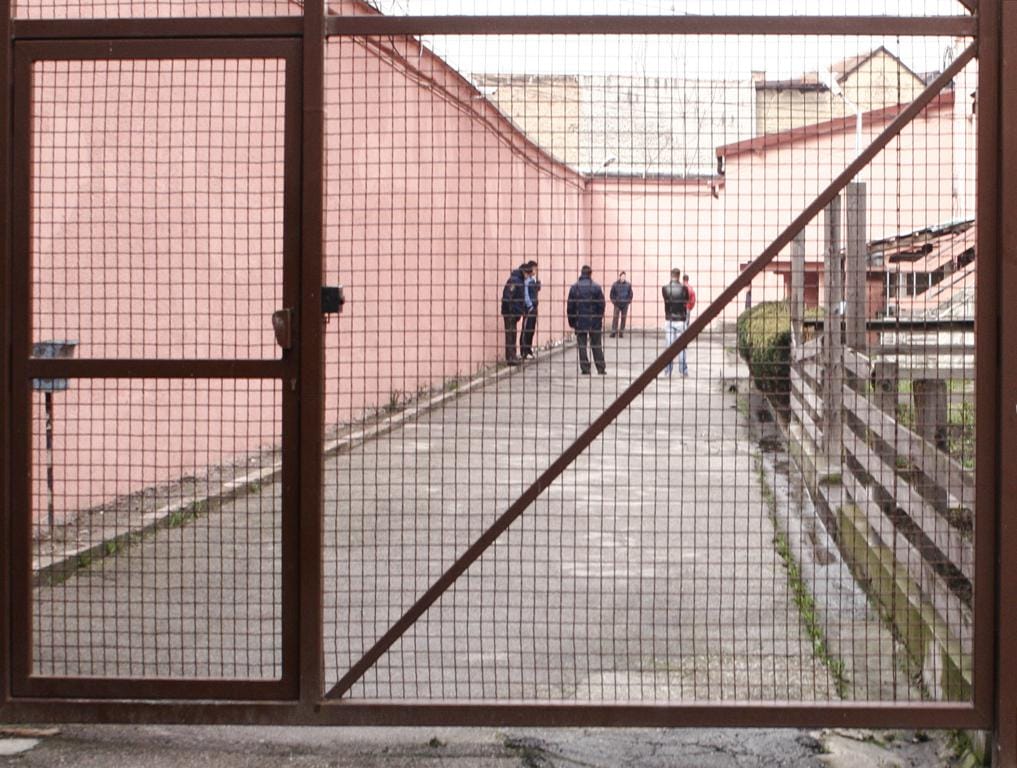Radenko Momić, 34, is the only policeman serving time in prison in Bosnia and Herzegovina (BiH) for public corruption. He says he is not an isolated case among 16,600 officers in the country nor is he the only who has taken advantage of his line of work to get rich fast.
He was sentenced to eight months in prison for twice doctoring accident reports so that he and a partner could claim insurance money. However, he admits he did this regularly over 10 years, amassing 300,000 KM, more than enough to start the successful hunting accessories business he runs now.
‘The bottom line is everyone does it’ said Momić. The crimes are hushed up by policemen who collaborate and protect each other.
Momić is not the only policeman behind bars. Across BiH some 17 other former officers are locked up for crimes including homicide, robbery, drug dealing, forgery and vehicular manslaughter, which are serious but not directly related to their jobs. The Center for Investigative Reporting in Sarajevo (CIN) visited all these men this spring to talk to them about corruption and regulation of police wrong doing.
What emerged is that most police officers caught in illegal acts often end up losing some pay, some time at work or, in many cases, their jobs. Only a few go to prison and that is especially true if their offense is corruption.
In that light, Momić seems especially unlucky.
He learned the basics of police work while still attending high school in Zagreb but four years into his police career his ideas about earning an honest living as a policeman changed. He had served as policeman in Kragujevac and Banja Luka for more than 10 years. He is now an inmate of the Banja Luka reform facility, convicted of fraud in service.
He didn’t expect to end up in prison. ‘But, I have always been ready’ said Momić who knew he was breaking law. ‘Make one mistake and it’ll cost you.’
He said that he wouldn’t end up in prison if his co-workers hadn’t told on him.

Momić was convicted in 2006 after trials before courts in Kotor Varoš and Banja Luka. What he did, the court found, was convince Sladomir Đurić of Banja Luka to submit a insurance claim for an old accident. Momić faked accident reports and stamped them with the official stamp, then passed them to the Bobar Insurance Company.
The unrepentant Momić said police are responsible for 70 percent of the criminal activities in town. ‘I’m convinced, and from experience I believe it’ he said.
Still, at trial he gave out no names of other involved police officers. ‘You see, it is hard for an honest person to remain in the police…One cannot claim insurance, cannot do anything without the police. They come first, then everyone else’ he said.
The former policeman got 10,000 KM from the two frauds, money he needed for defense attorneys.
‘Well, I never took pennies. If I took it on my own, I took it upon myself to make an accident. If I hit on someone, it was never for less than 500 KM’ Momić said.
An experienced traffic policeman, he said, can make a lot of money on the side through illegal means. In the summer one can earn up to five police salaries.
‘An officer gives a 30 percent cut to his commanding officer. You tell him to assign you on the highway and you’ll make 2,000 KM a month from video surveillance’ said Momić.
However, corruption is not a job for greenhorn policemen. It takes time to learn how to operate and to earn the trust of superiors. It took four years of police work to learn how to doctor accident reports. He said that no one controls a crime scene investigation.
During his time as a policeman he made about 300,000 KM in such ways. To start his hunting business he put down 150,000 KM in cash. He didn’t need a loan then, and he doesn’t need his police job anymore now.
‘What need do I have for it? A police job is just a front.’
Policeman and forger
Former Tuzla policeman Nusret Mešić, couldn’t scrape together 4,500 KM. If he could, he wouldn’t have to spend 81 day in prison — the sentence for his not paying a fine levied for his trying to pass off a doctored university degree as genuine.
He spends his days behind the bars in Tuzla.
If he had paid the money he would not have money to pay for his daughters’ education. His daughters are studying in Sarajevo, one at the School of Medicine and the other at the School of Traffic and Transportation. ‘I need around 600 KM every month’ he calculates.
Only his wife knows of his prison stay. He hasn’t told his daughters, extended family and neighbors. He said he was ashamed. He accepted an interview with a journalist because of a bad conscience.
‘I had to tell someone.’
He said prison is an ordeal, especially when the topic of the prisoners is the police. ‘They make fun of me’ he said.
Policemen – murderers and bank robbers
Out of 18 policemen – inmates, 12 are in prison because of murder. In interviews they usually deny their crimes.
But one who does not is Denis Matić, a policeman from Čapljina. The judges held it against him that he was a police officer. He was charged with killing a man and wounding another during an early morning quarrel at a gas station in 2003. He says he fired in self-defense, but there were four bullets in the dead man. The policeman was sentenced to 10 years in prison.
Slaviša Lonco, serving time in Kula prison near Sarajevo, was convicted of robbery. A seven year veteran of the RS SWAT team, he was reconciled to the idea that he might end up in prison one day.
‘You cannot live off other people’s money without being a convict. The road to success leads through the jail’ said Lonco in jest.
Lonco took part in the robbery of Union bank in Tuzla. He was covering his partner, who was taking cash from the vaults. He said that he was prepared to shoot at the clerks if necessary. The partner got away.
‘When I do something, I do it thoroughly. I wouldn’t shoot right away, but if needs be…if you must, you must’ Lonco said, still joking.
Prison wardens claim that police officers get no special treatment.
According to prison wardens, officers in service do not often visit their former co-workers, at least not in uniform. ‘I guess they are trying to distance themselves’ says Ibrahim Prohić of the Tuzla prison management.
Jailed policemen say that their colleagues do visit them. They don’t judge or reprimand them.
Momić said his former colleagues cannot rebuke him because they are doing the same thing. ‘I know who does what’ he said.







